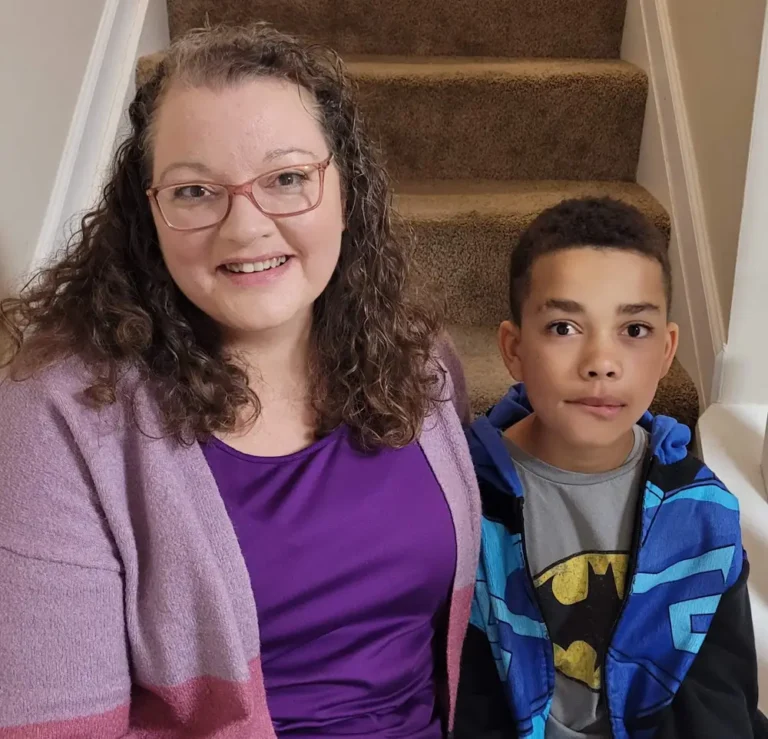I quit my job to look after my grandchildren. My son initially paid me $10 an hour, but now I gladly do it for free.

A grandmother (not pictured) said being paid to look after her grandchild made her feel like an “employee.”
This as-told-to essay is based on a conversation with Jo Storm, 69, from Wisconsin. It has been edited for length and clarity.
My daughter-in-law was four months pregnant when my son asked if I’d consider caring for their first child while they were at work.
It was about 10 years ago now. I was working 20 hours a week in retail.
“Mom, we really don’t want to put our child into a day care,” he told me. “Would you be able to watch our baby instead?”
Without a thought, I said yes. It was more a privilege and a duty as a parent and grandparent than about how much money I would forfeit by leaving my job.
At 59, I still felt I had the energy and willpower to keep up with a little kid. Besides, it seemed the right thing to do.
My son and daughter-in-law worked long hours in demanding jobs. I know that if I hadn’t agreed to watch their daughter, they’d have managed somehow.
But the stress would have been amplified if they didn’t have a family to help out.
I received $300 for 30 hours of childcare the first week
The initial plan was for me to provide childcare four days a week, sometimes with my husband, while my daughter-in-law’s parents covered the other day and sometimes a weekend.
I was very enthusiastic because I felt like I had to offer my grandchildren. I’d previously gotten a day-care license after taking classes at a community college. I’d been thinking about running my own business from home. I decided against it, mostly because of the high insurance costs.
Later, my son and daughter-in-law’s accountant said, “Maybe you could pay your family for childcare and apply it to your taxes?”
So, when I formally watched my granddaughter for the first time, they paid me around $300. It worked out at about $10 an hour — the same rate I’d earned in retail.
But, as soon as they gave me the salary at the end of the week, I felt so guilty — and as if I was an employee. “This can’t happen again,” I told my son. “I am a grandma, not a granny-nanny.”
I now provide childcare for free
I wasn’t in it for the money. Compensation can’t pay for the memories of being with my grandchildren.
I wanted them to take back the dollars, but they said to keep them that once to put toward things I’d already bought, like cribs, dressers, and bouncy toys.
After that, I did everything for free. My husband picked up some extra hours at work, which went toward the income I no longer brought in. Still, people would say, “You know, you’re affecting yourself financially. “
But I told them I was giving a gift to my son, daughter-in-law, and grandchildren that was priceless.
I watched my granddaughter, now 10, at my home from around 6:30 a.m. to 5 p.m. Her parents would drop her off and pick her up. They did the same when her little brother, now 8, was born.
If they had to work late, I’d drive the kids to their home and stay as long as was needed — sometimes 10 p.m. We were fortunate they only lived 4 miles away.
It’s an extremely rewarding job
As the children got older, I’d take them to preschool for three hours every morning. I taught myself American Sign Language and instructed them. I also read to them, and they both perform above grade level.
These days, we often take them after school and do a lot of activities, like gymnastics and swim lessons. On Saturdays or Sundays, we attend soccer games. But we organize things ourselves, such as fishing or crafting. It’s extremely rewarding.
If I find myself getting tired, I’ll just say Grandma needs to step back from kicking the soccer ball and take a rest. But I’m planning to give as much childcare support as I can — until the day I die.
I think a late retirement is healthy. Stepping up for your family when they need it is not a sacrifice.






